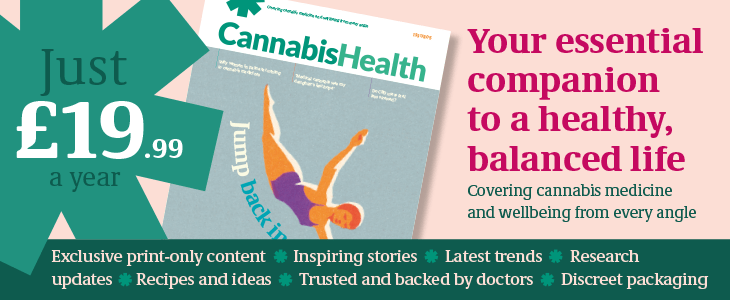A novel formulation of the cannabinoids THC and CBN was found to improve sleep in medical cannabis patients.
The study, which appeared in the American Journal of Endocannabinoid Medicine, concluded that a repeat-action tablet formulation of THC and CBN was associated with improved sleep quality in participants.
A sleep-tracking device was used to measure sleep in 35 medical cannabis consumers, with an average age of 47 years.
According to the study, the most common medical conditions for which participants reported taking cannabis were sleep/insomnia (69 percent), pain (40 percent), and generalised anxiety disorder (29 percent).

The most common concerns cited were waking up too often during the night, not feeling well rested upon awakening in the morning (74 percent); and taking too long to fall asleep at night and waking up too early in the morning (26 percent).
The authors wrote: “The use of cannabis to improve sleep quality and treat sleep-related disorders has received increased attention due to the expanded legalisation of cannabis for medical use in 36 states and Washington DC.
“Data on the effects of delta-9-tetrahydrocannabinol (THC), in combination with cannabinol (CBN), on sleep is preliminary; however, preclinical research indicates that CBN may prolong sleep and be particularly effective when combined with other cannabinoids.”
Participants who completed the study slept an average of six hours and 29 minutes per night before starting on treatment, sleeping an average of 20 minutes longer while taking the tablet.
There was also a 22 percent increase in reported feelings of restfulness upon waking, with an 18 percent increase in reported overall sleep quality during the product use.
Sleep quality was reported to rise from an average rating of 53.32 (on a 100-point sleep quality scale) before product use to 65.21 during product use.
Each tablet contained 10mg of THC and 5mg of CBN and were administered as a repeat-action dosage form, meaning half of the doses released immediately after oral administration, and the remaining half released two to three hours later.
Authors of the study concluded: “This study found that an oral product containing a combination of THC and CBN was directly associated with both improved objective and perceived sleep quality and duration in a sample of patients taking medical cannabis.
“However, there were no significant changes in the objective sleep measurements specific to remaining sleep, despite the participant-perceived improvements, including reports of longer time in bed and total sleep time records.”
The full study is published in the American Journal of Endocannabinoid Medicine (AJEM).


 News6 months ago
News6 months ago
 Science5 months ago
Science5 months ago
 Industry6 months ago
Industry6 months ago
 News6 months ago
News6 months ago
 News5 months ago
News5 months ago
 Health5 months ago
Health5 months ago
 News5 months ago
News5 months ago
 Health3 months ago
Health3 months ago














